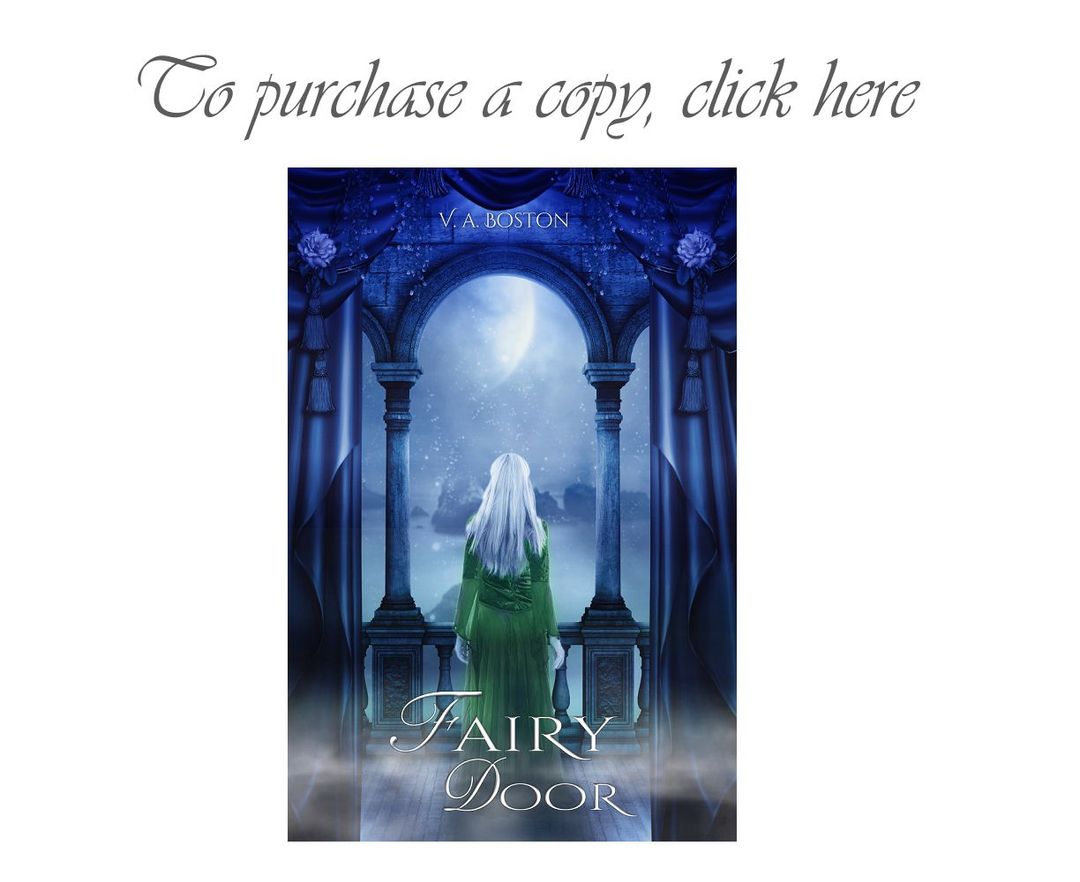Eibhlin stiffened and turned to the voice. Standing on a bedpost was a tiny woman. Black hair spread behind her like a cloak, causing her pale body to appear nearly white. Large, dark eyes locked onto Eibhlin as transparent wings twitched against the fairy’s back. Flying from the bedpost to the hammer, she reached out and brushed long, thin fingers against the silver. “Amazing work,” she said. “More so than I remembered. Human child, will you sell to me this hammer?”
“You… you’re a fairy!” said Eibhlin.
“Yes, and you are a human,” said the fairy without a change in tone. “Now, will you sell me the hammer?”
“I thought fairies rarely approached humans.”
“Rarely, but not never. Now, the hammer—”
“The-the hammer? What about it?” asked Eibhlin.
“I wish to buy it from you,” said the fairy. “Of course, the price is yours to set.”
Eibhlin held the hammer closer. “Why do you want this? You can’t forge anything with a hammer made of a soft metal like silver. It’s useless.”
“To humans, yes. To humans, it is no more than a decoration,” said the fairy.
“But not to you?” asked Eibhlin.
“It is useful to all but human kind,” said the fairy. “This hammer crafts with magic. It’s a powerful tool, elven made and ancient, and none alive are skilled enough to make another like it. In proper hands, it has shattered diamonds, among its baser actions. But in human hands, invoking its enchantments overwhelms the user and often leads to death. Such is the nature of great and ancient magic.”
Eibhlin caught her breath. She stared at the hammer, turning it over in her hand and in her mind. With a quiet voice, she said, “And you want me to sell you something so incredible?”
“Have you a reason to refuse me?” said the fairy.
Eibhlin did. Clearly her father valued this thing if he kept it despite being unable to use it, and if he hadn’t sold it by now, he probably didn’t plan to. However, he had also left her to handle the house and finances on her own, and when the merchant trains came, she would need something to trade for necessities. With how little the forge’s fire had been lit recently, or would be in the coming weeks, there wouldn’t be many options.
“What’s your offer?” she asked. “You more or less said this thing is priceless. How can you match that?”
With a clap louder than Eibhlin would expect from hands so small, the fairy grew to nearly her father’s height. From a pocket on her belt, the fairy removed a small, leather pouch. She reached in and pulled out a polished gold coin. The fairy held out the coin. “Take it and test it however you wish.”
Eibhlin let the heavy metal press against her palm. It caught the light from the fire in the next room, giving the circle a shining rim. Eibhlin swallowed the tremble in her voice. “So… you’ll give me some gold coins? How does that even come close to ‘priceless’?”
“A king’s coffers could not meet the hammer’s value,” said the fairy. “However, this is but a sample. Your hand, please.”
Eibhlin held out her hand, and the fairy tipped the purse. A stream of gold poured out, drowning Eibhlin’s lap and the floor in an outspreading flood of coins. Only when the fairy righted the purse did the flow of money stop. With coins slipping through her fingers, Eibhlin said, “How did you—where did they come from?”
The fae creature said, “This purse opens to my treasury. I possess greater wealth than any mortal king could gather over lifetimes, but I have no use for it. It would be yours to spend. The closest one could come to ‘priceless,’ yes? Have we a deal?”
Eibhlin weighed the hammer in one hand and the gold in the other. The hammer was probably important to her father, but the house needed repair. And all the work must be done by a lone girl as she also cooked, cleaned, and brought things to her father and helped the town. Brien told her as much that morning. Not a free hand could be spared, and certainly not her father’s. Merchants were not charities, and there was simply too much to prepare.
But if she sold the hammer? Could she not ease the town’s worry? Would that not free up some hands to help her? Perhaps even her father’s? What was a decoration to a safe, warm house and everyone’s livelihoods? Her father was never home to use or even look at it anyway.
Eibhlin held out the hammer. “Deal.”
A flash of emotion briefly filled the fairy’s face. Gently, she took the hammer and replaced it with the purse and said, “Our transaction is finished. Fare you well, human child. Doing business was a pleasure.”
With that, the fairy shrank and shot off into the dark, leaving Eibhlin alone and clutching her new wealth.






























































